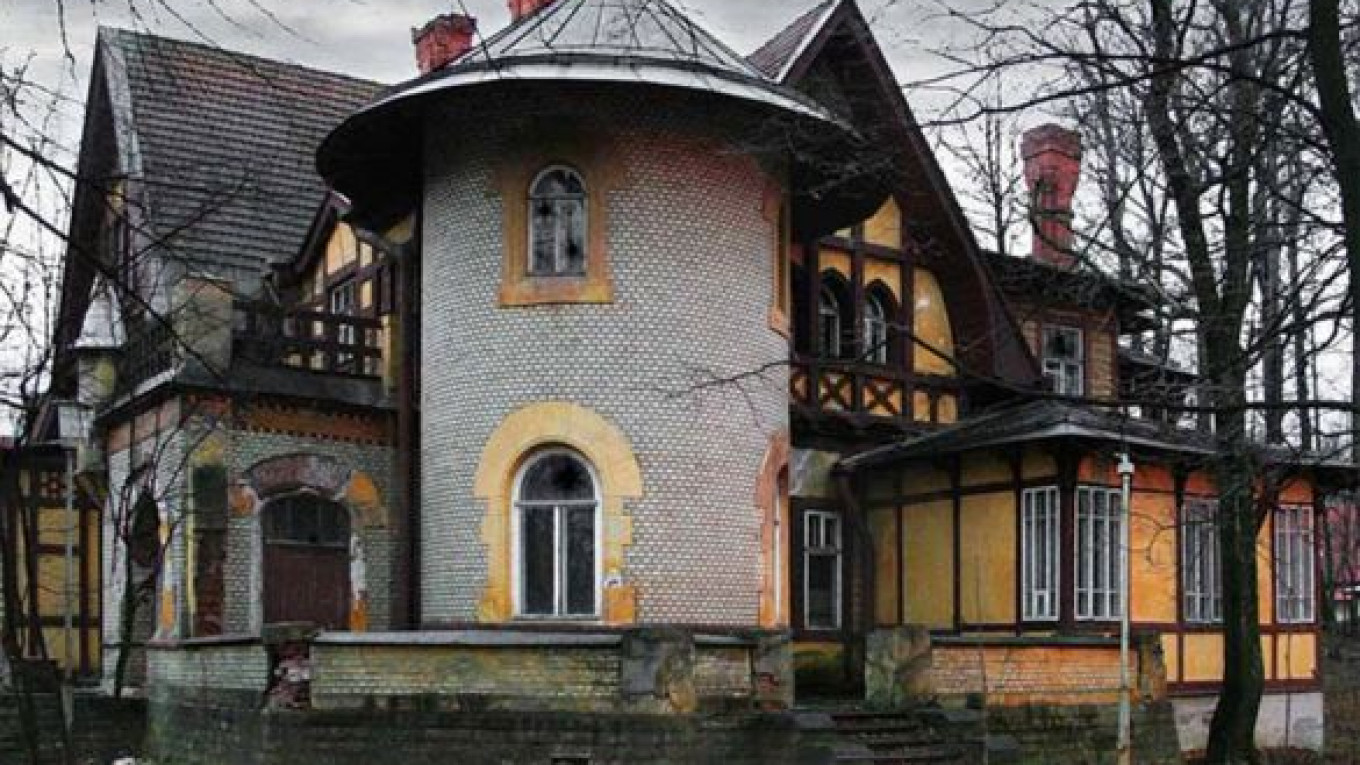St. Petersburg's grand boulevards and classical facades seem timeless, yet the city's architectural heritage is vanishing at an alarming rate, according to a new report.
In the past 12 years, more than 150 historical buildings have been destroyed in the northern capital, say Elena Minchenok and Clementine Cecil, co-editors of "St. Petersburg: Heritage at Risk," published Monday.
Hundreds more are at risk of demolition, says the report, released by the Moscow Architecture Preservation Society (MAPS), Zhivoi Gorod ("Living City") and SAVE Europe's Heritage.
Among those currently at risk: the late Soviet-era Morskoi Vokzal seaport and the nation's first art nouveau building, the Gausvald Dacha, built in 1898.
Other architectural monuments, such as the "House of Literature," an apartment building where Fyodor Dostoevsky, Ivan Turgenev and other Russian literary legends once stayed, have already been lost.
The report, whose release was timed to correspond with a UNESCO meeting in St. Petersburg, details dozens of buildings, from crumbling country estates to derelict factories, most threatened by developers and neglect.
"If we'd included everything, the book would have weighed as much as a bag of bricks," said Minchenok, a founder of Zhivoi Gorod, a St. Petersburg-based preservationist NGO.
Minchenok and Cecil, chairwoman of MAPS and director of SAVE Europe's Heritage, say the state is not doing enough to protect the city's architectural heritage and, in many cases, is helping developers destroy it.
"This book is a call for the city and federal authorities to treat the city — Russia's window to Europe — according to the international treaties that the nation has signed, as well as to halve the amount of demolition, the construction of sham replicas and the dereliction of a World Heritage Site," they write.
Downtown St. Petersburg is a UNESCO World Heritage Site, which means that development is technically limited.
But high profit margins lead developers and urban planners to make exception after exception, permanently changing the face and character of the city, the editors say.
The book is a call to discussion as much as a call to arms, stressing the importance of dialogue between preservationists, citizens, government and developers in order to retain the city's unique spaces, the editors say.
"You can't think of St. Petersburg as a series of valuable buildings. You have to think about it holistically," Minchenok said at a news conference held at the Shchusev State Museum of Architecture in Moscow.
The city's neglected Soviet-era heritage should get more attention, the editors say.
"One of the most important ideas of this report is that St. Petersburg is not only a classical city, it's also a 20th-century city," Cecil said. "The Soviet architectural heritage is just as important as the imperial heritage."
The report is the fourth such collaboration by MAPS and SAVE Europe's Heritage, coming after two about Moscow and one about Samara.
Minchenok and Cecil announced that their next report would be about derelict churches in rural Russia.
A Message from The Moscow Times:
Dear readers,
We are facing unprecedented challenges. Russia's Prosecutor General's Office has designated The Moscow Times as an "undesirable" organization, criminalizing our work and putting our staff at risk of prosecution. This follows our earlier unjust labeling as a "foreign agent."
These actions are direct attempts to silence independent journalism in Russia. The authorities claim our work "discredits the decisions of the Russian leadership." We see things differently: we strive to provide accurate, unbiased reporting on Russia.
We, the journalists of The Moscow Times, refuse to be silenced. But to continue our work, we need your help.
Your support, no matter how small, makes a world of difference. If you can, please support us monthly starting from just $2. It's quick to set up, and every contribution makes a significant impact.
By supporting The Moscow Times, you're defending open, independent journalism in the face of repression. Thank you for standing with us.
Remind me later.


